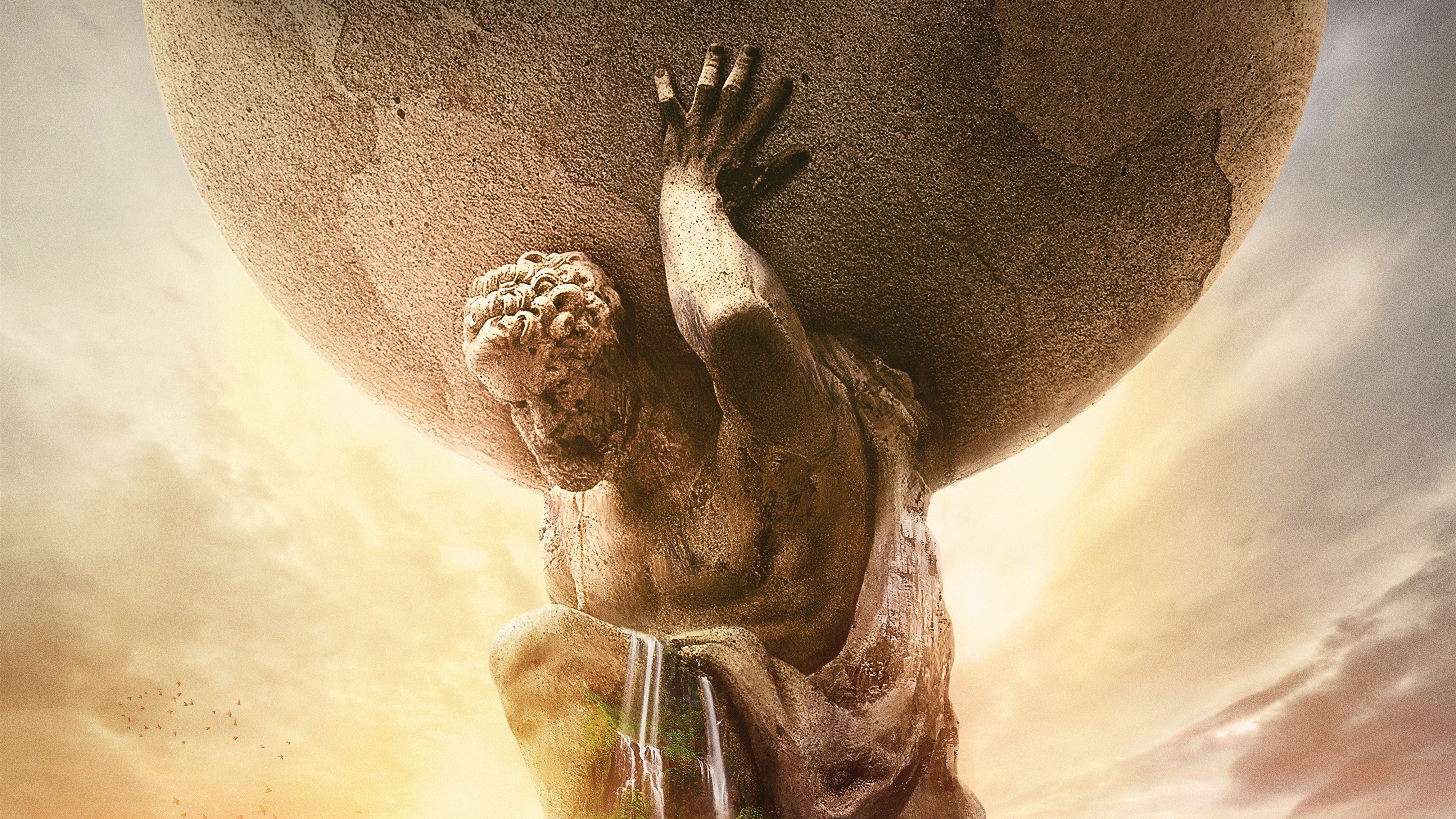
As the last major update for Civilization 6's New Frontiers season lands this week, I'm reminded of the fact that it's the Civ game I've played the least, by far, since I fell in love with the series through Civ 3 a full 20 years ago. And I'm not alone in feeling a little bit let down by it. It seems like Civilization has stagnated in a genre that keeps evolving and thriving in the hands of series like Europa Universalis and Total War. And with Amplitude's Humankind on the horizon, a potential Civilization 7 has a big, direct competitor right in its backyard.
I may be making the situation sound gloomier than it probably is. Civ 6's DLC has been well received, and the series maintains a large, dedicated fanbase. Firaxis could probably keep doing what it's doing and skate along for another decade or more. But as our standards for historical strategy games change, and new devs and players come onto the scene to mix things up, I think this would be a major missed opportunity. So here's how Firaxis can keep Civ relevant.
Let me set my own goals
Civ 5 and 6 represent a departure from their forebears by evoking neatly-packaged board games focused on bespoke win conditions that everyone is racing toward. This might be good for competitive players, but it takes some of the feeling of "roleplaying history" out of the series. It no longer feels like I have the freedom to build whatever kind of society I want. Everything from the dawn of my civilization to the very end is in pursuit of launching a rocket, or conquering the world, or making everyone buy my blue jeans. The emphasis on the destination distracts from the journey.
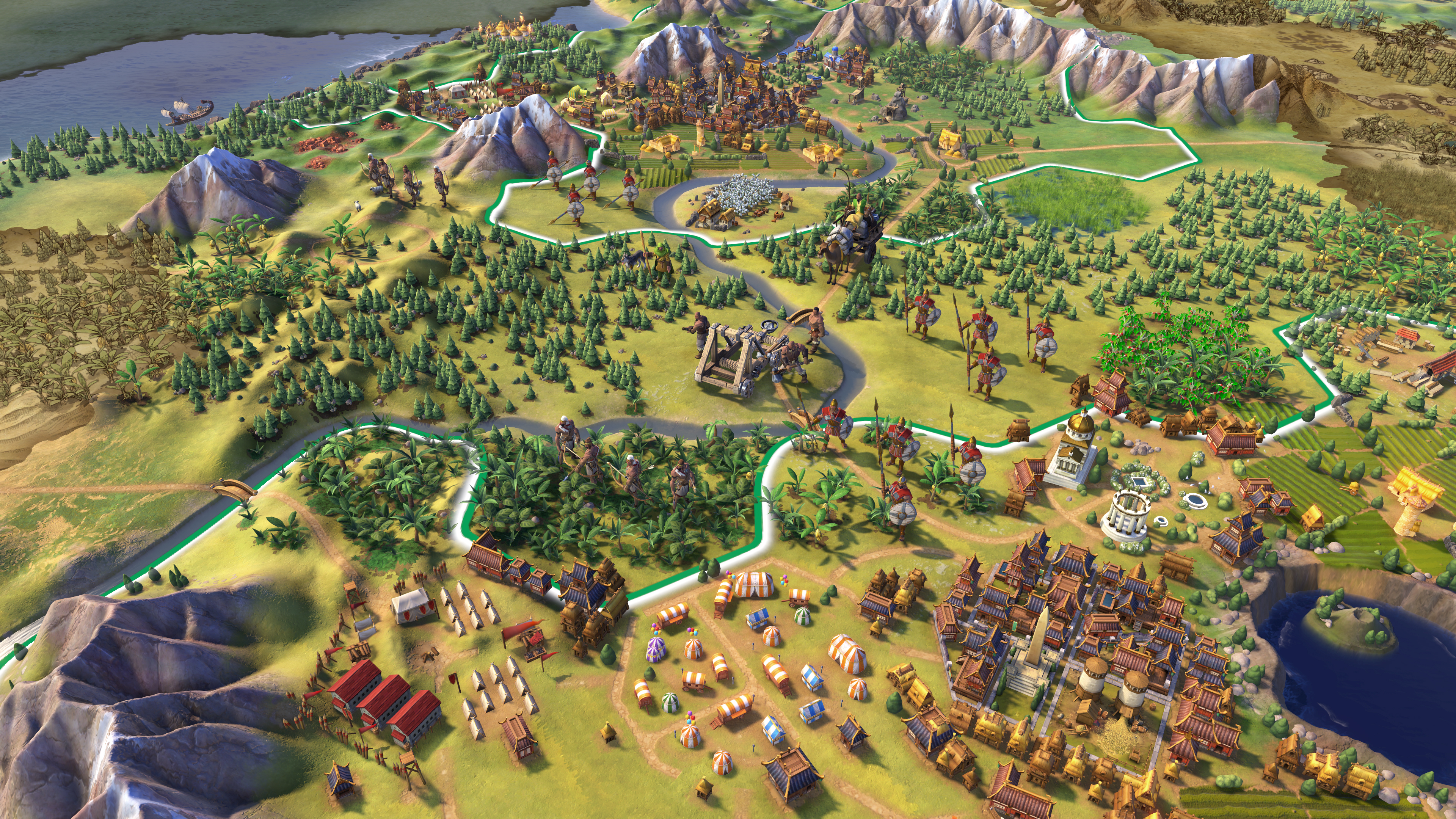
This is a big part of why I ultimately drifted away from Civ and toward games like Crusader Kings. I like to set my own goals. I like to decide what I think a successful civilization looks like, rather than picking from a list of possibilities the developers provided. I like to be able to change my mind about the kind of society I'm building if it makes sense at a certain point. I don't like the idea that placing a district in the wrong tile in the classical era might lead to me being horribly behind in science or religion many eras later.
A victory-focused approach means the designs for each civilization's unique abilities become overly-complicated, too, since they are trying so hard not to pigeon-hole each one into a specific playstyle. If it takes more words than this entire paragraph to explain what a hockey rink does, you've gone a bit too far. I'd rather see Civ 7 adopt a philosophy similar to Stellaris, where there may be a set of specified victory conditions to aim for, but the entire experience isn't designed around them.
Stop modelling everything on modern Western society
Regardless of whether you're playing as the English, the Maori, or the Cree, every society in Civ 6 seems to end up in roughly the same place. And that is something along the lines of the United States in the 21st Century—a centralized, urbanized nation state with skyscrapers, heavy industry, and an imperialist, exceptionalist outlook on the rest of the world. That's not only limiting the diversity of playstyles the series could introduce, but it's bad history as well. In 2018, when the Cree were added to Civ 6 in the Rise and Fall expansion, the headman of the Poundmaker Cree Nation, on whom the faction was based, said as much.

"It perpetuates this myth that First Nations had similar values that the colonial culture has, and that is one of conquering other peoples and accessing their land," Headman Milton Tootoosis said. "That is totally not in concert with our traditional ways and world view."
Keep up to date with the most important stories and the best deals, as picked by the PC Gamer team.
I'd love to see a Civ game that acknowledges this, and allows me to build a non-imperialist society that takes good care of its land and its people, values sustainability over pure productivity, and preserves its sovereignty against imperialist powers. Maybe I don't even need to build factories. The indigenous nations in what are now the Pacific Northwestern United States knew how to cultivate salmon runs that produced more high-quality protein per square meter—with far less labor, pollution, and ecological disruption!—than the best farming techniques of the European settlers that displaced them.
Why can't I build a society that looks like that? Why does "progress" always have to look like concrete apartment blocks and 5000 TV channels full of corporate advertising and row after row of smog-belching refineries? It speaks to a troubling worldview if we say that one way is universally better, or more "advanced" than the other.
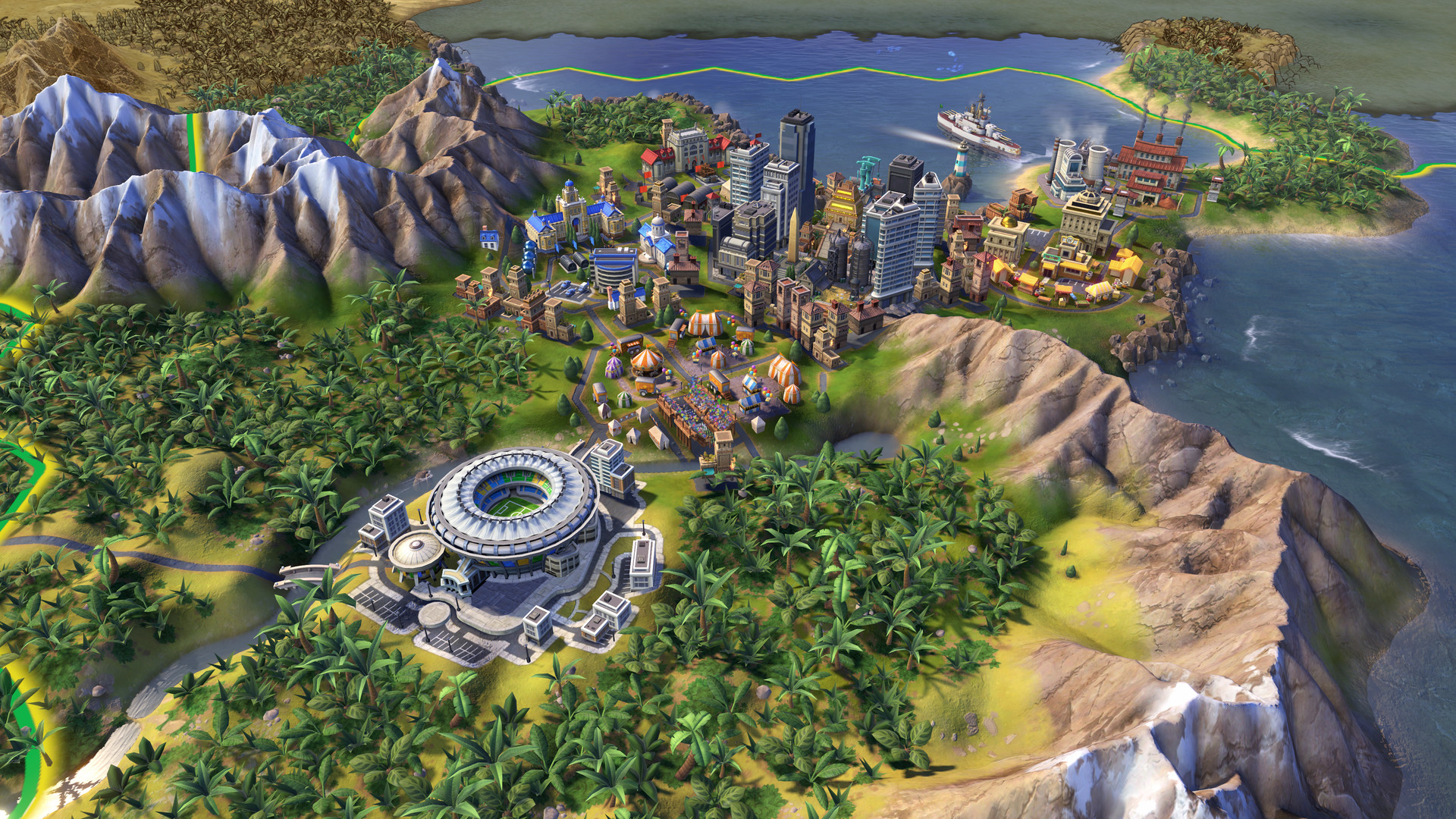
When you treat the modern, developed West as the logical endpoint for any successful society, you do a disservice to the victims of colonialism. It was and is through their suffering that the obscene concentrations of wealth we see in those societies came about and continue to perpetuate themselves. In a very meaningful way, you're only letting us play as the "bad guys'' of history. You either die in obscurity or live long enough to see yourself become the rapacious empire. This framing also sweeps under the rug the massive devastation to the biosphere that has come as a result of these modes of civilization. Which brings us to...
Hurt me more, history daddy
Both of the major expansions for Civilization 6, in concept, are almost exactly what I would have tried to create if you'd asked me to design them myself. In practice, they both fall short. Gathering Storm's late game climate change, even if you let it run unchecked, is so minimally disruptive that it can almost be ignored. City centers, even right on coastal lowlands, are immune to any kind of permanent destruction because Firaxis was worried about making the consequences too harsh. Similar logic kept it from reintroducing the possibility of nuclear holocaust that previously existed if you dropped too many bombs in older Civ games.
For one thing, this majorly downplays the role climate change will play in the coming century. And it simply makes the game less interesting! I'll admit I'm a bit of a masochist, but I find most strategy games are far more engaging and memorable when I'm thoroughly screwed and having to fight tooth and nail to survive.
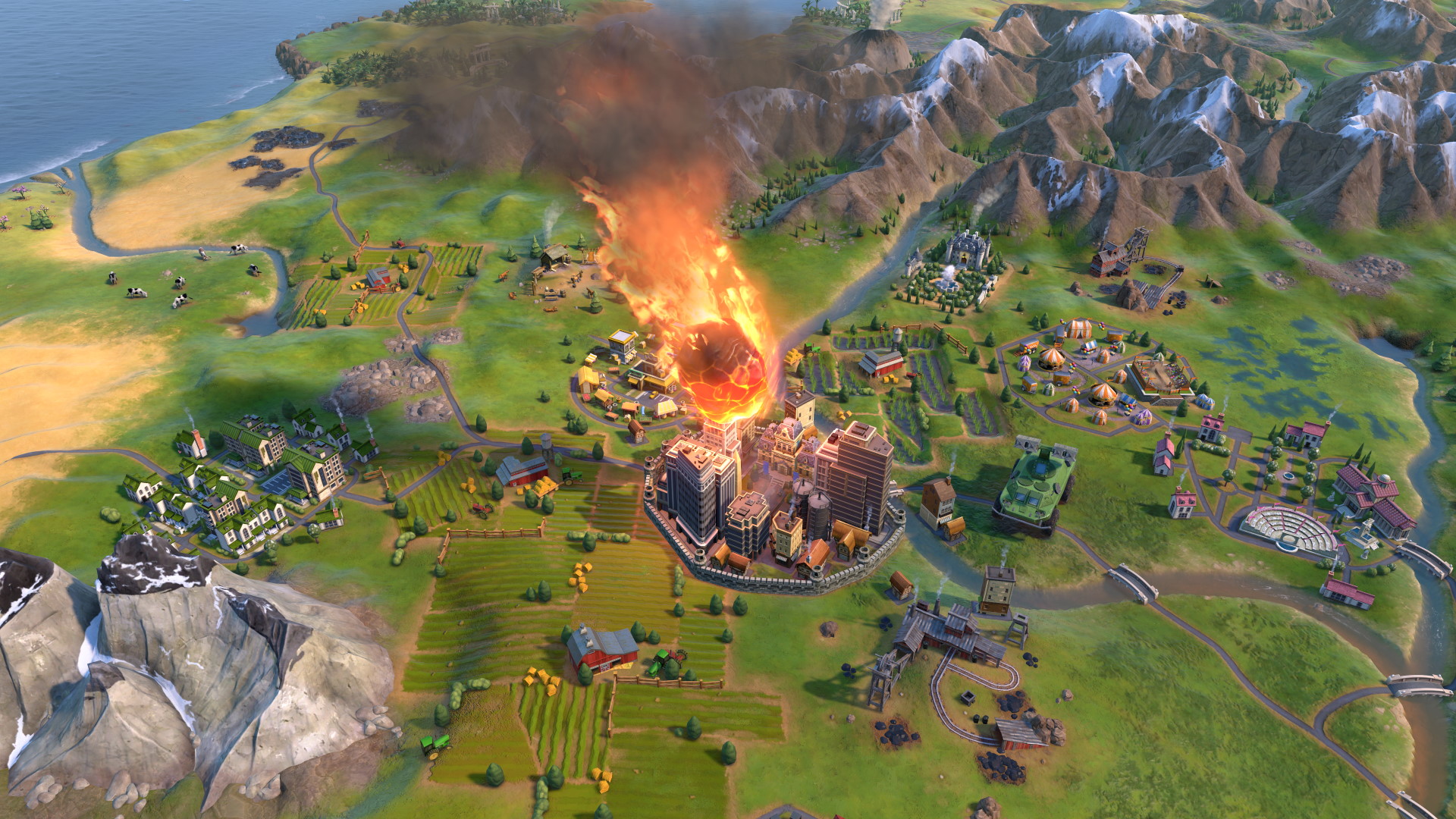
There are some game settings in Gathering Storm that let you amp up the punishment of ecological disasters, but I still don't think it goes far enough. There's no refugee crisis. I'm never forced into endgame resource wars or diplomatic tension by the encroaching sea and climate-related famines. I can nuke the shit out of every tile outside my borders and never have to worry as long as I didn't move my units through the green stuff. Things simply feel too much like business as usual.
Rise and Fall is much the same. History can often be framed in terms of broad arcs showing growth and collapse, prosperity and ruin. And while the Dark Age mechanic pays lip service to this, it rarely gives me the sense that my whole civilization is declining. It's a few weeks of stormy weather, not a desperate last stand or the final onset of stewing decay.
I want the dramatic arc of my people in Civ 7 to feel more impactful, with downturns that are final and unavoidable. Victory tastes so much sweeter if the road to it's fraught with devastation and sorrow. Just ask the Starks. Maybe my nation collapses altogether, and I have to pick a new culture to take over with from where they left off? Humankind is already doing something similar, and I think Amplitude is on the right track.
Give me a sense of place again
I've come to hate Civ 6's district system. It creates late game maps that don't look at all realistic compared to past Civ games. While the bare maps themselves are quite attractive and memorable, once your empire is splayed out across them you end up with these ugly, fake-looking strips of semi-connected, technicolor urban sprawl. A city-sized, bright red military base here, a colossal, garish marketplace there... I don't feel transported to history; I feel like I'm looking at a very elaborate board game.
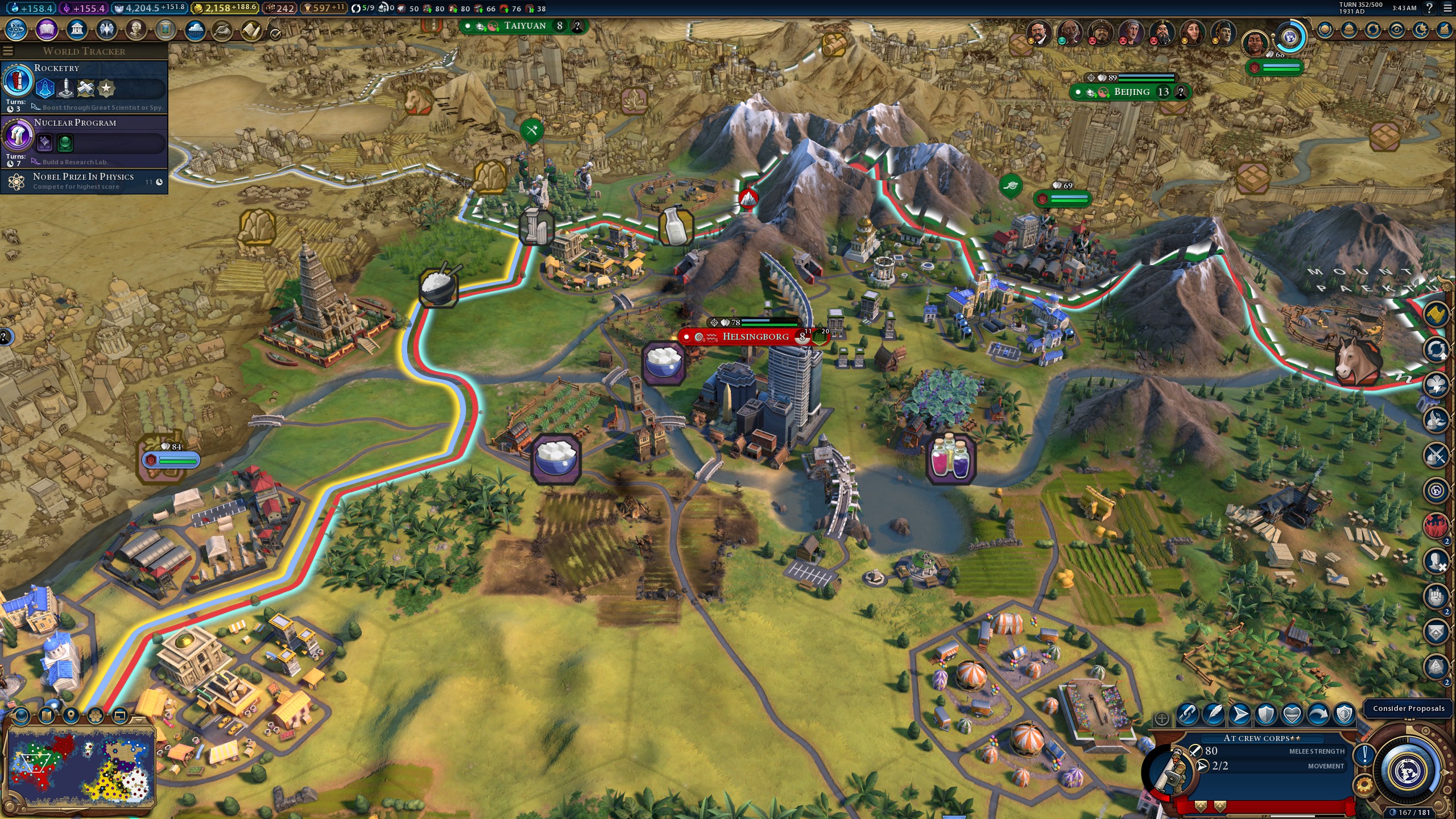
Civ 5, in contrast, features tidy urban centers surrounded by attractive farms, mines, and other outlying industries that made for a very organic look from the ancient all the way up to the information age. The concept of districts itself isn't bad, but I want to be able to look at my civ and feel like I could write a travel guide about it.
I want to be able to see the logic in where major population centers sprang up, how suburbs sprawled out from them, where the fertile farming regions are, and where the hills are dotted by small logging towns. I want it to look less "game-y" and more like an atlas. The fantasy of building a fictional society is more important than making it very clear what each of my color-coded civic LEGOs does.
Country roads...
In a lot of ways, I feel like I've moved on from the Civilization series. The kinds of stories I used to tell myself in my head while playing are now facilitated much better by games that take a less abstract approach to history. But it doesn't need to stay that way. If Firaxis is willing to take some chances and look at how historical strategy has evolved by leaps and bounds since its last couple cracks at the genre, it could make something truly incredible that proves why it held the crown for so long.
Be daring where you could be safe. Disrupt where you could have chosen to merely iterate. Sid Meier himself said of designing Civ 1 with Bruce Shelley in 1991: "We were young, and we had no fear." The world is still yours for the taking. And fortune favors the bold.
Len Hafer is a freelancer and lifelong PC gamer with a specialty in strategy, RPGs, horror, and survival games. A chance encounter with Warcraft 2: Tides of Darkness changed her life forever. Today, her favorites include the grand strategy games from Paradox Interactive like Crusader Kings and Europa Universalis, and thought-provoking, story-rich RPGs like Persona 5 and Disco Elysium. She also loves history, hiking in the mountains of Colorado, and heavy metal music.

